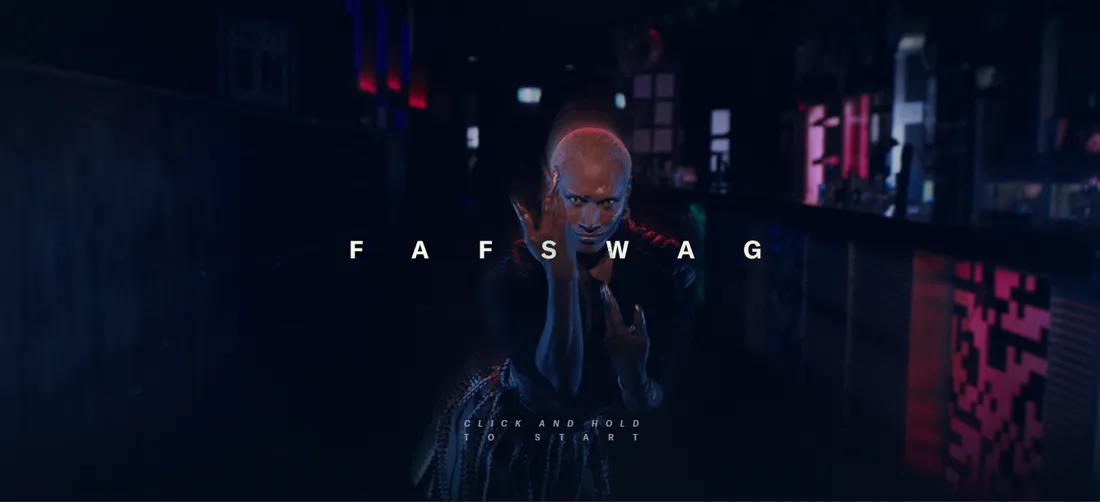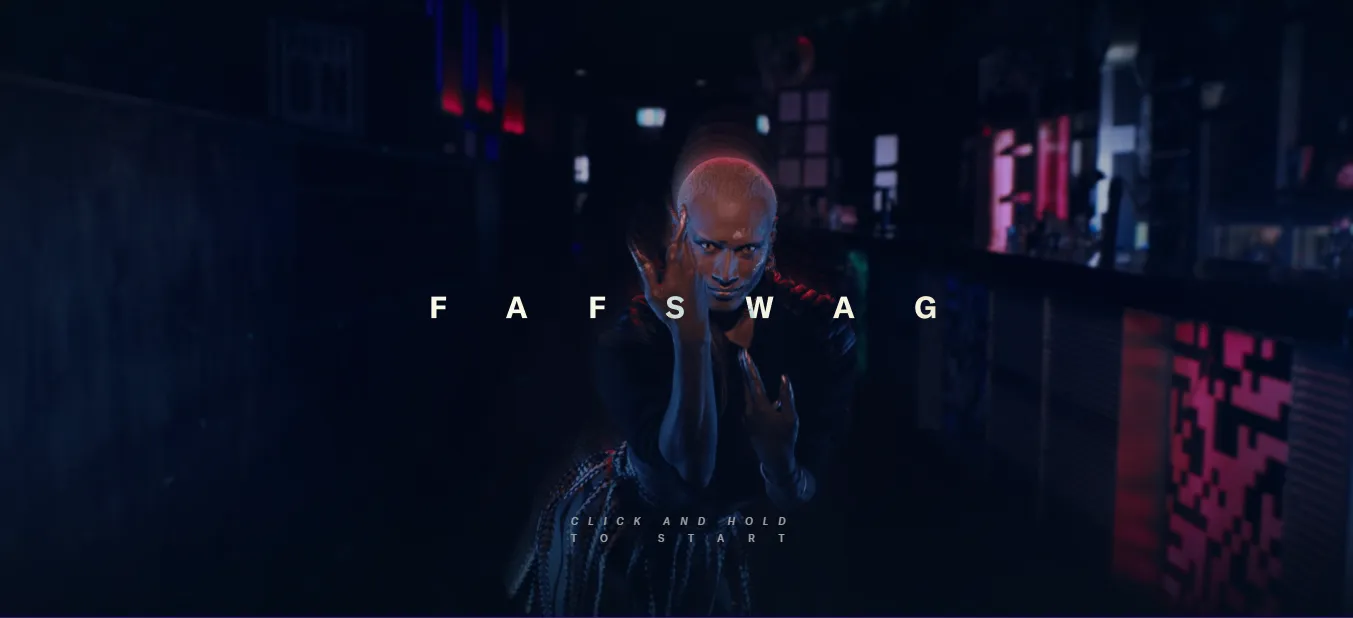FAFSWAG: Launch of the Interactive Documentary
Written by


FAFSWAG is a collective of artists who work across multiple disciplines and mediums, and challenge the complexity of identity, social change, culture, and history.
As a part of Auckland Pride Festival, on Wednesday, February 7, FAFSWAG officially launched their new interactive documentary at Toi o Tāmaki (Auckland Art Gallery), featuring live vogue battles and an outdoor screening.
The documentary allows you to choose two dancers you’d like to battle, choose the venue, and then you decide the winner. A documentary segment is available about each dancer/artist. The high-quality video and original sound production require a desktop and good speakers or headphones to experience a true immersion into the audio-visual. The outdoor screening at the launch gave the documentary a larger cinematic experience.
Co-founder of FAFSWAG Tanu Gago thanked the sponsors and those who supported the making of their interactive documentary: Piki Films, Resn, Toi o Tāmaki Activate Auckland, and New Zealand On Air: “It’s hard to do cool shit when you don’t have the money.”
Safety during the launch event was a high priority. FAFSWAG wanted to ensure that anyone at the event could be themselves without fear of being outed in any ways, especially if people's safety would be compromised. Everyone taking photos were asked to be mindful of this.
During the live vogue battles, the audience was included as a crucial and active part of the event—not merely spectators. We were encouraged (told to) vocally respond to the dancers. “You give something, we give something back. You hype the performers, they give you more.” My hesitancy to be outwardly expressive of enthusiasm in a new environment (this was my first Vogue Ball though FAFSWAG has hosted many), kept me quiet for the most part—clapping and smiling after each performance. However, being around high energy performers and responders was a comforting experience.
Although aspects of the vogue scene are bold and iconic in aesthetic— the outfits, the makeup, the dance-moves, the beats—the resonance that FAFSWAG artists attribute to vogueing is finding an alternative culture that embraces and empowers their complex sense of identity—of being brown, queer, and in some cases, of low-economic class—that they otherwise couldn’t find in the spaces they occupied. For many, the ways of being that were made available to them growing up in Pasifika environments were often (but not exclusively) religious and conservative. FAFSWAG as a collective, and vogueing as an artform and social event, come together as an assertion of individual and communal identity.
In her documentary segment, Jaycee Baby brought up the critique of the framing of beauty, femininity, and realness in the vogue scene. Indeed, when my friend Luka and I were discussing our thoughts after the event, we reflected on how valuable these (arguably) spaces of resistance are and how even within them, there are still patterns of conformity and assumptions made that still need teasing out. These complexities are at the forefront of anyone’s mind who has to constantly negotiate who they are, or who they can be (or be seen to be) in any given space.
FAFSWAG have nurtured artists that aren’t afraid to have these conversations, and these public events (which in this case, was free!), invites us, the audience, to be a part of it. You give something, they give something back.